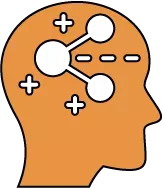Can I get searched at school?
Last Reviewed:
Reviewed By:

As a student, you have the right to privacy at school, but it's not the same as your privacy rights outside of school. School officials have more leeway to conduct searches to keep the school safe and orderly
Here’s what you need to know about your privacy rights and how searches work at school:
What School Officials Can Do
School officials, like your principal or teachers, can search you or your belongings if they have a good reason to believe they might find something dangerous or against school rules, like drugs or weapons. Here’s what they’re allowed to do:
- Pat-Down Searches: If they suspect you have something you shouldn’t, they can pat down your clothing
- Locker Searches: They can check your locker since it’s considered school property.
- Bag Searches: They can look through your backpack or other bags if they think there’s something dangerous inside.
These searches must be done in a way that isn’t too invasive, but they do have the authority to search if they have reasonable suspicion.
When the Police Are Involved
When it comes to the police, the rules are stricter. Police need stronger reasons to search you or your belongings at school. Here’s how it works:
- Reasonable and Probable Grounds: Police need to have a solid reason to believe they will find something illegal, not just a hunch. This is a higher standard than the one for school officials.
- No Random Searches: The police can’t search students or the school randomly or just because it’s convenient. They need specific reasons.
- Using Sniffer Dogs: If police use dogs to sniff for drugs, they need to suspect a particular person or bag, not just use the dogs to search everyone.

What This Means for You
While at school, understand that your privacy is protected, but not as strongly as it is outside of school. School officials can search you with reasonable suspicion, but police need stronger evidence to do so. Knowing these rules helps you understand your rights and what to expect if a search happens at your school.
 Crime & Police
Crime & Police Money Stuff
Money Stuff Health & Sexuality
Health & Sexuality Legal Life Skills
Legal Life Skills Driving
Driving Family
Family Work & School
Work & School Housing
Housing Basic Rights
Basic Rights